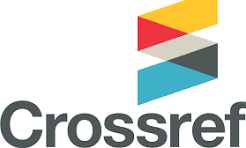מי מפחדת מאוטוביוגרפיה?
על כתיבתן האוטוביוגרפית של נשים בעולם הערבי - פדוא טוקאן והיפאא ביטאר
DOI:
https://doi.org/10.64166/8b7pp373תקציר
במאה העשרים, לצד התפתחות שחלה בכתיבה הנשית בעולם בכלל, החלו להתפרסם אוטוביוגרפיות פרי עטן של נשים ערביות. זאת, בין השאר, בהשפעת שינויים פוליטיים, כלכליים וחברתיים שהתרחשו בתחילת המאה העשרים בעולם הערבי והשפיעו עלמעמדן של הנשים ועל תודעתן העצמית, וכן בהשפעת אסכולות פמיניסטיות מערביות.אמנם, לספרות הנשית יש מאפיינים ייחודיים, אך היא אינה מנותקת מהשיח החברתי"תרבותי"פוליטי במרחב שהיא נכתבת בו. שזירת סממנים אוטוביוגרפיים ביצירה א ובכתיבה אוטוביוגרפית במסווה של רומן או של סוגה אחרת עשויה להקל על המחברתאת תהליך החשיפה ולהציג בצורה מהימנה יותר את הקונפליקט בין המרחב הציבורי למרחב הפרטי"הנשי. ברומן בעל מאפיינים אוטוביוגרפיים, או ברומן אוטוביוגרפי,הקורא עשוי למצוא קווי דמיון בין חיי המחבר להתרחשויות שחווה הדמות ביצירה, אךלהבדיל מאוטוביוגרפיה, החושפת סיפור חיים מלא, רומן אוטוביוגרפי עשוי לחשוףפרטים ספורים בלבד או רק שלבים מסוימים מחיי המחבר. למהלך חייו של המחברעשויה להיות השפעה ניכרת על הכתיבה ועל תכניה, ולפיכך יבואו בה לידי ביטויגורמים תרבותיים, פוליטיים וחברתיים.המשוררת הפלסטינית פדוא טוקאן והסופרת הסורית היפאא ביטאר מבטאות שנ יקולות של נשים הלוחמות למען האמת שלהן. טוקאן רואה בשחרור הנשי חלק בלת ינפרד מן השחרור הלאומי ומבנייתה של אומה מתוקנת. לפיכך היא מדגישה ביצירותיהאת הממד הלאומי וקושרת בין המאבק הנשי האישי למאבק הלאומי. ביטאר יוצאתנגד הדיכוי הנשי באמצעות חשיפה בוטה של תחושותיה הקשות והכמוסות ביותר. אתחומרי היצירה שלה היא שואבת מסיפור הגירושין האישי שלה, והיא מצליחה לשתףבו את קהל קוראיה בעזרת הגדרת יצירתה כרומן. כל אחת מהן בחרה לקדם את סדרהיום הנשי במרחב הערבי בדרכה שלה, ובכך כל אחת מהן מבטאת דפוס אחר שלכתיבה אוטוביוגרפית ומציגה טכניקה המסייעת לה להתמודד עם תכתיבי החברההפטריארכלית.
References
Downloads
פורסם
גיליון
מדור
License
Copyright (c) 2014 ג'מאעה: כתב עת בינתחומי לחקר המזרח התיכון

This work is licensed under a Creative Commons Attribution-NonCommercial 4.0 International License.





